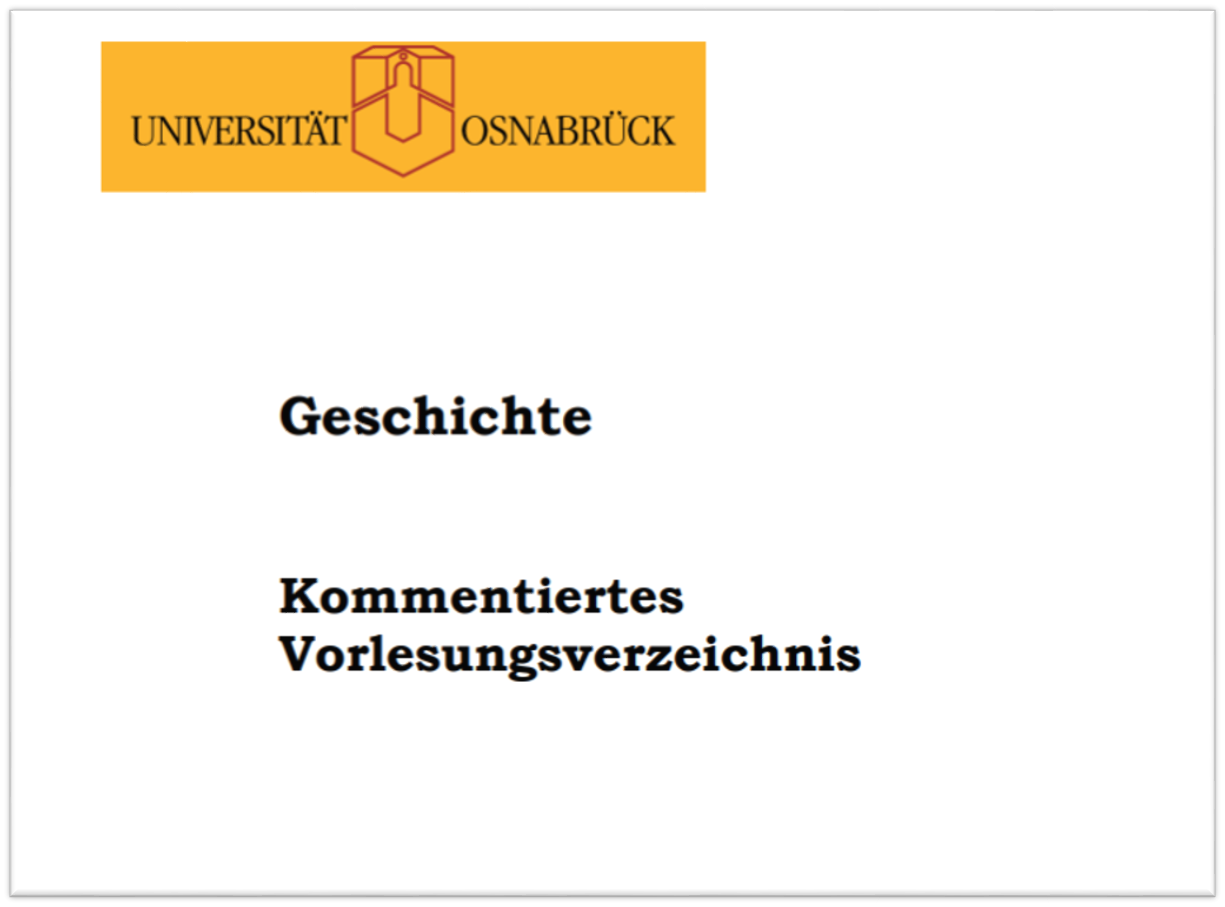| Privilege and Exclusion: Historical Origins of Racist Migration Regimes in the Western Hemisphere |
| DozentIn: |
| Dr. Albert Manke |
| Veranstaltungstyp: |
| Seminar (Offizielle Lehrveranstaltungen) |
| Beschreibung: |
With the start of European expansion in the late fifteenth century, transoceanic migration became a phenomenon of hitherto unprecedented extent. Europeans used their military and technological superiority to govern the mobility of people across the oceans they began to dominate. While China had similar expansive ambitions before, internal reasons led to the withdrawal of its far superior navy from global endeavors. “Free” transatlantic migration became a privilege of mostly white Christian European males, with the mobility of women, indigenous and African people being subjected to the will of the ruling elites. The slave trade forced millions of Africans to migrate into bondage (if they survived the passage), thus reinforcing racialized notions of dependency stemming from long-established discriminatory ascriptions and practices.
With the onset of mass transatlantic migration in the nineteenth century, the gradual abolition of slavery, and the transition to free labor, the regulation of migration became a tool of the emerging nation-states in the Americas to shape their growing populations. Discriminatory migration policies started to be enacted with the very process of nation-building, as racial markers, alongside other intersecting markings like religion, gender, age, health, origin, social and economic status and literacy once again framed mobility. Since the late nineteenth century, nationality and immigration laws were used in the United States, Latin America, and the Caribbean to prevent the immigration of ethnic groups that were considered “inferior” or “undesired”, especially Asians and Africans, and to promote immigration that would “whiten” their countries. Capitalist elites promoted or rejected mass immigration when it fit their interests, but oftentimes their policies also responded to prejudice and street violence of a working class coming under pressure in an increasingly competitive labor market. Both white elites and the proletariat thus significantly shaped migration regimes in the Western Hemisphere.
This seminar provides an overview of the changing and at times entangled discriminatory migration policies in the Americas. While we will mostly focus on the nineteenth to mid-twentieth century, we will also include references to incidences of privilege and exclusion in the Early Modern Era, thus sketching out some of the historical origins of racist migration regimes that shape the Western Hemisphere until today. We will give special attention to the discussion of basic analytical terms and concepts like migration/mobility, free vs. forced migration, ethnic or racial (self-) adscriptions, and the construction of (trans-) national and hybrid identities. |
| Ort: |
| 52/106: Montag, 24.10.2022 14:00 - 16:00, Montag, 24.10.2022 16:00 - 18:00, Dienstag, 25.10.2022 10:00 - 12:00, Dienstag, 25.10.2022 12:00 - 14:00,
02/108: Mittwoch, 26.10.2022 - Donnerstag, 27.10.2022 16:00 - 18:00, Freitag, 16.12.2022 10:00 - 12:00, Dienstag, 31.01.2023 12:00 - 14:00, Mittwoch, 01.02.2023 - Donnerstag, 02.02.2023 16:00 - 18:00,
15/111: Freitag, 20.01.2023 10:00 - 12:00,
22/106: Montag, 30.01.2023 14:00 - 16:00,
04/151: Montag, 30.01.2023 16:00 - 18:00,
11/115: Dienstag, 31.01.2023 10:00 - 12:00 |
| Semester: |
| WiSe 2022/23 |
| Zeiten: |
Termine am Montag, 24.10.2022 14:00 - 16:00, Montag, 24.10.2022 16:00 - 18:00, Dienstag, 25.10.2022 10:00 - 12:00, Dienstag, 25.10.2022 12:00 - 14:00, Mittwoch, 26.10.2022 - Donnerstag, 27.10.2022 16:00 - 18:00, Freitag, 16.12.2022, Freitag, 20.01.2023 10:00 - 12:00, Montag, 30.01.2023 14:00 - 16:00, Montag, 30.01.2023 16:00 - 18:00, Dienstag, 31.01.2023 10:00 - 12:00, Dienstag, 31.01.2023 12:00 - 14:00, Mittwoch, 01.02.2023 - Donnerstag, 02.02.2023 16:00 - 18:00, Ort: 22/106, 04/151, 11/115
Erster Termin:Montag, 24.10.2022 14:00 - 16:00, Ort: 52/106 |
| Veranstaltungsnummer: |
| 2.235 |
| Voraussetzungen: |
| This course is intended for M.A. students and will be held entirely in English. Excellent proficiency in English is a requirement for all participants.
The initially required secondary literature will be provided in the folder for section 1 (block week). All texts in this folder have to be read in advance, as we need them in order to engage with each other in the first week of this block seminar. |
| Bereichseinordnung: |
Veranstaltungen > Sozialwissenschaften > Master Internationale Migration und Interkulturelle Beziehungen (IMIB) > Modul 5: Migrationsregime
Courses in English > Cultural Studies and Social Sciences (e.g. European Studies, International Relations) |
| Hinweise zur Veranstaltung |
This course is intended for M.A. students and will be held entirely in English. Excellent proficiency in English is a requirement for all participants.
The initially required secondary literature will be provided in the folder for section 1 (block week). All texts in this folder have to be read in advance, as we need them in order to engage with each other in the first week of this block seminar. |
| Literatur |
FitzGerald, David Scott and David Cook-Martín (2014). Culling the Masses: The Democratic Origins of Racist Immigration Policy in the Americas. Cambridge: Harvard University Press, pp. 1-46 (Introduction).
Manke, Albert (2021). Coping with Discrimination and Exclusion: Experiences of Free Chinese Migrants in the Americas in a Transregional and Diachronic Perspective. (Inter-American Studies / Estudios Interamericanos, vol. 32) Trier: WVT; New Orleans: University of New Orleans Press.
McKeown, Adam (2004). Global Migration, 1846–1940. Journal of World History 15/2: 155-189. |
| Weitere Informationen aus Stud.IP zu dieser Veranstaltung |
Heimatinstitut: Fachbereich 1: Kultur- und Sozialwissenschaften
beteiligte Institute: Geschichte
In Stud.IP angemeldete Teilnehmer: 9
Anzahl der Postings im Stud.IP-Forum: 2
Anzahl der Dokumente im Stud.IP-Downloadbereich: 27
|
|
|
|


